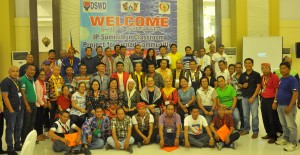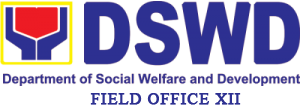Koronadal City—The Department of Social Welfare and Development has gathered leaders of Indigenous Peoples in SOCCSKSARGEN for a consultation dialogue recently for the construction of 135 classroom project in the region.
Bai Zorahayda T. Taha, DSWD 12 regional director said that the dialogue aimed to make sure that stakeholders, especially IP leaders, are inclusively taking active roles in the project with their important insights and recommendations.
“Aside from its unique implementation mode, this project will not follow the conventional type of classrooms as of non-IP areas, instead its design and other aspects will be based on the suggestions and wisdom of IP communities,” Taha added.
Taha said that the classroom project, which is part of the support to the establishment of new public schools for the Indigenous Peoples in Mindanao, has been allotted by the national government and World Bank with some P114.75 million for the region.
Meanwhile, Joey L. Bogay, the regional director of National Commission on Indigenous Peoples said that the consultation with IP leaders in the region is a gesture of respect and recognition for IP communities in order to ensure that these projects will not compromise traditions and cultural integrity of IP communities.
Others national government agencies including Department of Education (DepEd) and Department of Health (DOH) also presented programs and projects for IP communities to discuss policies and recommendations for the said project.
There are 18 areas set to benefit the project. These are Kidapawan City, Libungan, Magpet, Makilala and Tulunan in North Cotabato; General Santos, Koronadal, Banga, Polomolok and T’boli in South Cotabato; Kiamba, Maasim, Malapatan, Malungon and Maitum in Sarangani; Esperanza, Senator Ninoy Aquino and Lebak in Sultan Kudarat.
Some 65 indigenous peoples mandated representative (IPMR) and tribal leaders attended the dialogue.
The project will follow the community-driven development (CDD) strategy of Kalahi-CIDSS, one of the DSWD’s flagship poverty-reduction programs.

Under the program, local communities are empowered by giving them opportunity to plan, design, implement projects, including control over resources and decision-making in a participatory, transparent and with strong sense of accountability manner. End (Hilbert T. Estacion, regional social marketing officer, DSWD 12)
